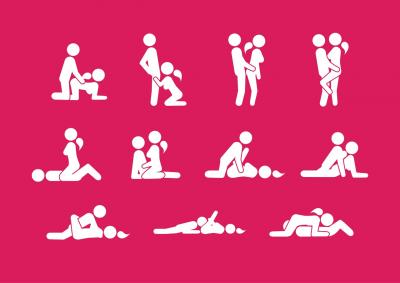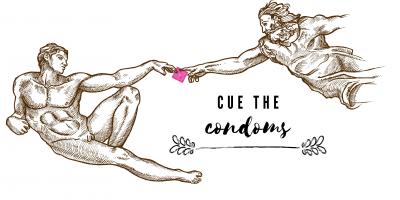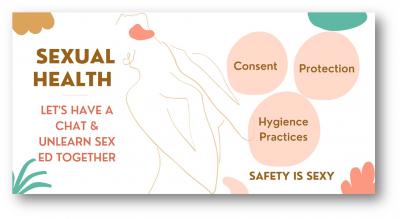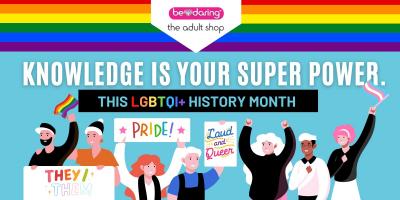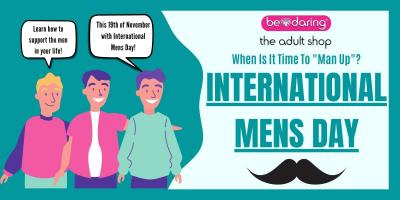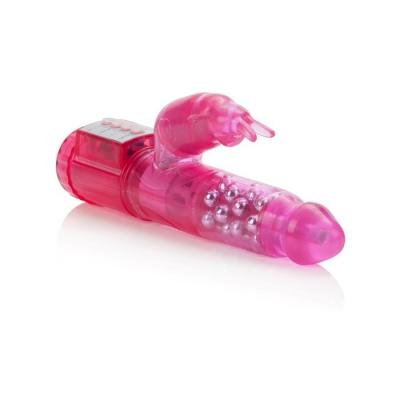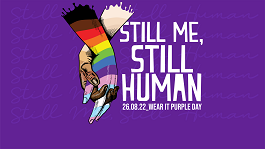Misgendering + Pronouns
Categories
Topics
- Sexual Health
- Women's Masturbation
- Women's Self Pleasure
- Anal Sex
- Gay Sex
- Butt play
- Ass Play
- Ass Sex
- Adult retail
- Buying sex toys
- Sex & Relationships
- Sexy Events
- Sexual Wellness
- LGBTQIA+
- Dry Herb Vaporizers
- Adult Lifestyle
- Buying Sex Toys
- Sexual Relationships
- How To Build a Sex Room
- Bondage
- BDSM
- Bad Dragon Dildos
- Lingerie
- Cleaning sex toys
- Sex dolls
- Wax Play
- Women's Wellness
- Sex Machines
Tags
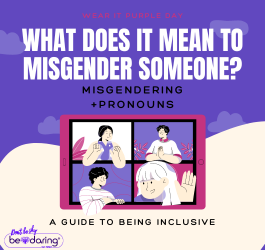
As a cisgender woman with long hair and a closet full of dresses, I can count on one hand the number of times I've been misgendered by being addressed as "he" or "sir." Cisgender indicates that I was assigned female at birth and identify as a woman. Being misgendered may be a regular occurrence for those who are transgender and/or nonbinary (TNB), having a different gender identification than their given sex at birth.
Why does misgendering matter?
Consider the following scenario: You are repeatedly addressed with the incorrect pronoun or honorific, such as Mr., Ms., or Mrs. It might happen in person, over the phone, or by email. Every time it happens, you must determine if it is worth it to correct that individual or whether it is better to let it go. Assume you are presented with this experience and the option of whether to repair it throughout the day - every day. As we know from the study, and as I've heard from TNB folks I know, this is both taxing and demoralizing. When people are misgendered, they feel dismissed and unnoticed. When this occurs on a daily basis, it becomes a burden that can have a detrimental influence on their mental health. People who are misgendered feel dismissed and unnoticed. When this happens on a regular basis, it becomes a burden that can harm their mental health and capacity to operate in the world.
If you are a cisgender person, you may help TNB persons by referring to them with the correct names, pronouns, and honorifics, apologising when you misgender someone, and correcting others when they misgender someone.
How do you use the proper pronouns, honorifics, and names?
Simple: either ask them or follow their lead. A person's choice of name, pronouns, and honorifics oneself tells others how they wish to be perceived and acknowledged. Using the appropriate terminology for someone shows that you respect them and understand how they view themselves. It can be challenging to recall the appropriate terminology when speaking to someone you previously knew as one gender but who now goes by a different name, pronouns, or honorific. This is especially true if the individual is gender-fluid and switches pronouns often. Neopronouns like ze and zir, gender-neutral pronouns like they and them, and unusual honorifics like Mx (pronounced "mix") might be difficult to get used to. But it's crucial to respect and assist TNB persons by using the appropriate terminology.
A few tips and tools
- Avoid assuming something about someone's name, pronouns, or honorifics based only on their appearance. Asking someone in private, "What pronouns do you use?" is the only surefire approach to find out what terminology they use. By requesting information from someone in public, you run the risk of unwittingly forcing them to reveal their identify to strangers. Anyone can have their name, pronouns, or honorifics requested, cisgender or TNB.
- The best approach to ensure that you use the appropriate terminology is to practise (this tool can assist with this). Practise both while they are present and when they are not. Before you know you will run into someone, practise. Practise with other people in your life, such as your cisgender friends, spouse, animal companions, and kids. My wife and I attempt to refer to our preschooler's dolls and toys in our home using gender-neutral pronouns so that we may practise using them ourselves. In order to further our practise, we even alter the pronouns used by characters in the stories we read.
- Another suggestion is to stop before you speak to help you remember to use the proper name, pronouns, and honorifics. We are more prone to misgender individuals when we are worried or busy. To be sure you are referring to someone correctly, try pausing for a beat before speaking. Reread emails to make sure you are not misgendering anyone, too, before you send them.
How to express regret after misgendering someone
Misgendering is inevitable. The most crucial factor is how you respond to it when it occurs. The greatest response to misgendering someone in the room is an apology and a promise to be more careful going forward ("I'm sorry, I meant [correct name/pronoun/honorific]"). Keep your apologies concise to avoid making the conversation about you and your error.
Try not to become defensive when someone corrects you. Simply say "Oh, thank you — I'll email [correct name/pronoun] about that" as your response to say, "Thank you and a correction." Even if the transgender person isn't there, taking this step will help you practice and will help others learn from your example. Practice so you can be more accurate the next time you misgender someone.
How to correct misgendering when you hear or see it
I frequently find myself in circumstances where I need to address misgendering because I am a cisgender coworker and supervisor to many TNB persons, many of whom are nonbinary and use they/them pronouns. I may remark something like, "I saw you referred to that individual as her. They use the pronouns they/them, just so you know. In an email or Zoom conversation, I would add a message that says, "Just a friendly reminder that this person uses they/them pronouns." The burden of rectifying misgendering for TNB individuals is lessened by moving forward in this manner. It is crucial for appreciating and embracing TNB individuals and serves as an example to others of how a correction can be made amicably.
How to speak in a gender-neutral manner and utilise common pronouns.
Using gender-neutral terminology is one technique to prevent gender ambiguity. Here are a few instances:
- Rather than "boys and girls" or "ladies and gentlemen," say "everyone."
- Rather than "fireman" or "policeman," use "firefighter" or "police officer."
- Instead of saying "hey guys," say "hey everyone" or "hey all."
Pay attention to your wording and look for opportunities to use gender-neutral terminology. You may be careful of your personal pronouns while also assisting others to be mindful by normalising pronoun displays.
How Do I Use Gender Inclusive Language?
This reference is intended to give you very basic pointers and replacement language to assist you eliminate gender assumptions in your language. Although you may not intend to cause harm, using language that assumes another person's gender or pronouns (if that person has not shared the gender or pronouns to use) can be harmful, as can using language that erases some people's genders by implying there are only two genders (or that only one gender is qualified to do a certain job). Many individuals have already changed their vocabulary to avoid using the term "that's so gay" as a negative expression or to avoid making assumptions about sexual orientation (for example, asking a woman whether she has a boyfriend). Many individuals have ceased using "he" as a universal language to refer to all persons, or to use exclusive "he" or "she" language to refer to all firefighters, flight attendants, physicians, nurses, administrative assistants, college students, and so on. Similarly, we must change our language to prevent making more assumptions that damage transgender and gender nonconforming persons. Small alterations in language may have a significant impact on people's lives.
Instead of saying "yes, sir" or "thank you, ma'am" or another language that assumes gender, you may just say:
Good morning!
Thank you very much.
It’s a pleasure.
How can I be of assistance today?
Could I help the next guest?
Yes, please.
Yes, absolutely. Coming right up.
Instead of calling upon or remarking about a particular “man” or “woman” (who has not disclosed that identity), you could indicate:
The person in the red shirt
The person with their hand raised
The person who just spoke
The person over here (gesturing)
Instead of “ladies and gentlemen” or “boys and girls” or other language that assumes only two genders, you could use:
Friends
Colleagues
Friends and colleagues
Esteemed guests
Children / Youngsters
Students
Instead of “he or she” or “s/he” (when speaking of an unknown or universal person) you could communicate:
They
That person
The patron
The guest








































